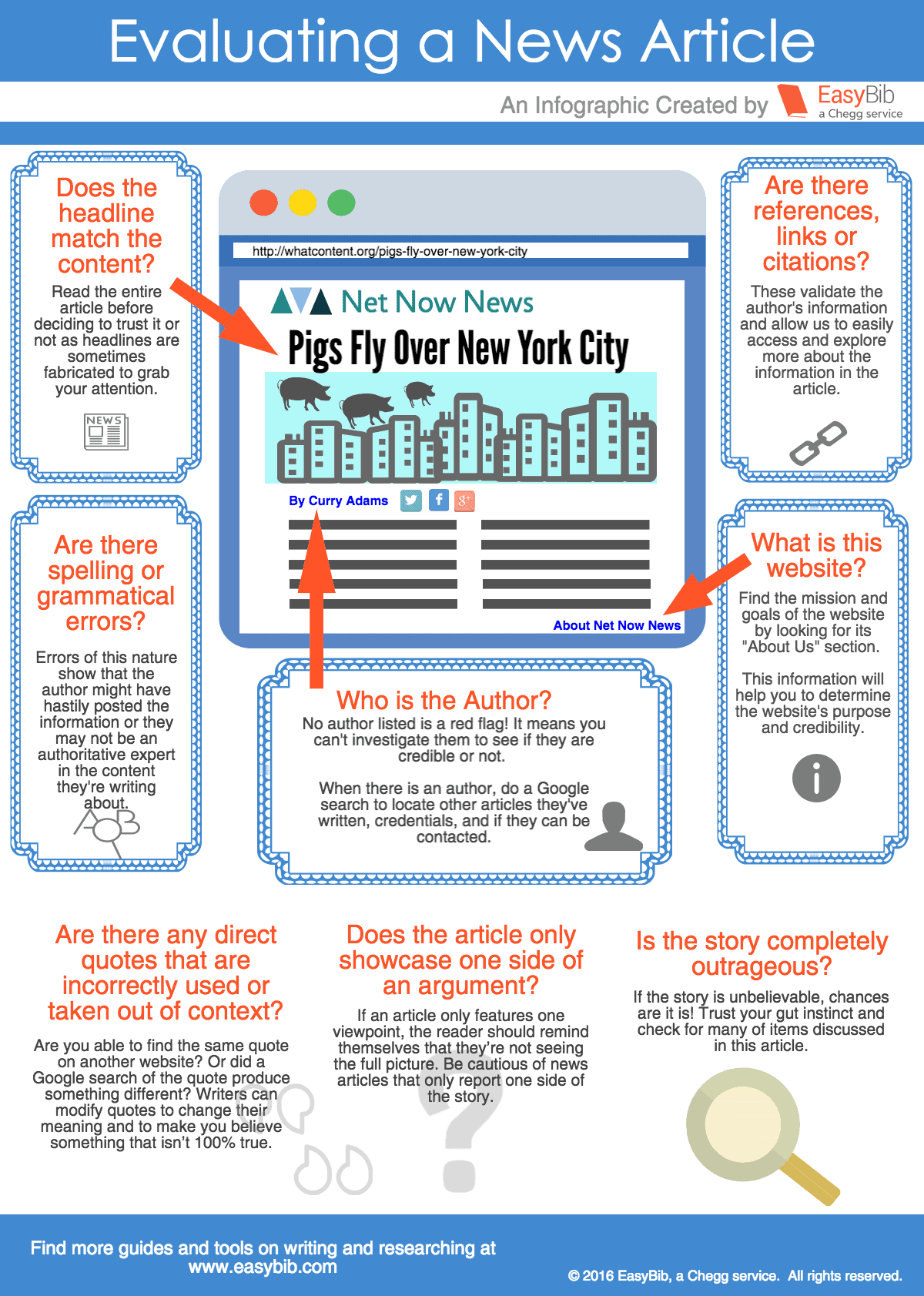
IFLA has made this infographic with eight simple steps (based on FactCheck.org’s 2016 article How to Spot Fake News) to discover the verifiability of a given news-piece in front of you.

10 Ways to Spot a Fake News Article,” which highlighted key items to look for on a website when determining its credibility. The infographic found here summarizes the content from the blog post and students can use it as a guide when using news sources in research.

There is a vast amount of information available on the Internet. However, the Internet is not regulated by any editorial agency, so anyone can post information that may not be reliable. Therefore, it is important to evaluate the information before using it as a reliable source. The following are some sites that provide tips to help you determine if the information is factual.
This is a free online encyclopedia that anyone can edit, so be careful about using this as a reliable source.
Circulation Desk: 305-899-3760